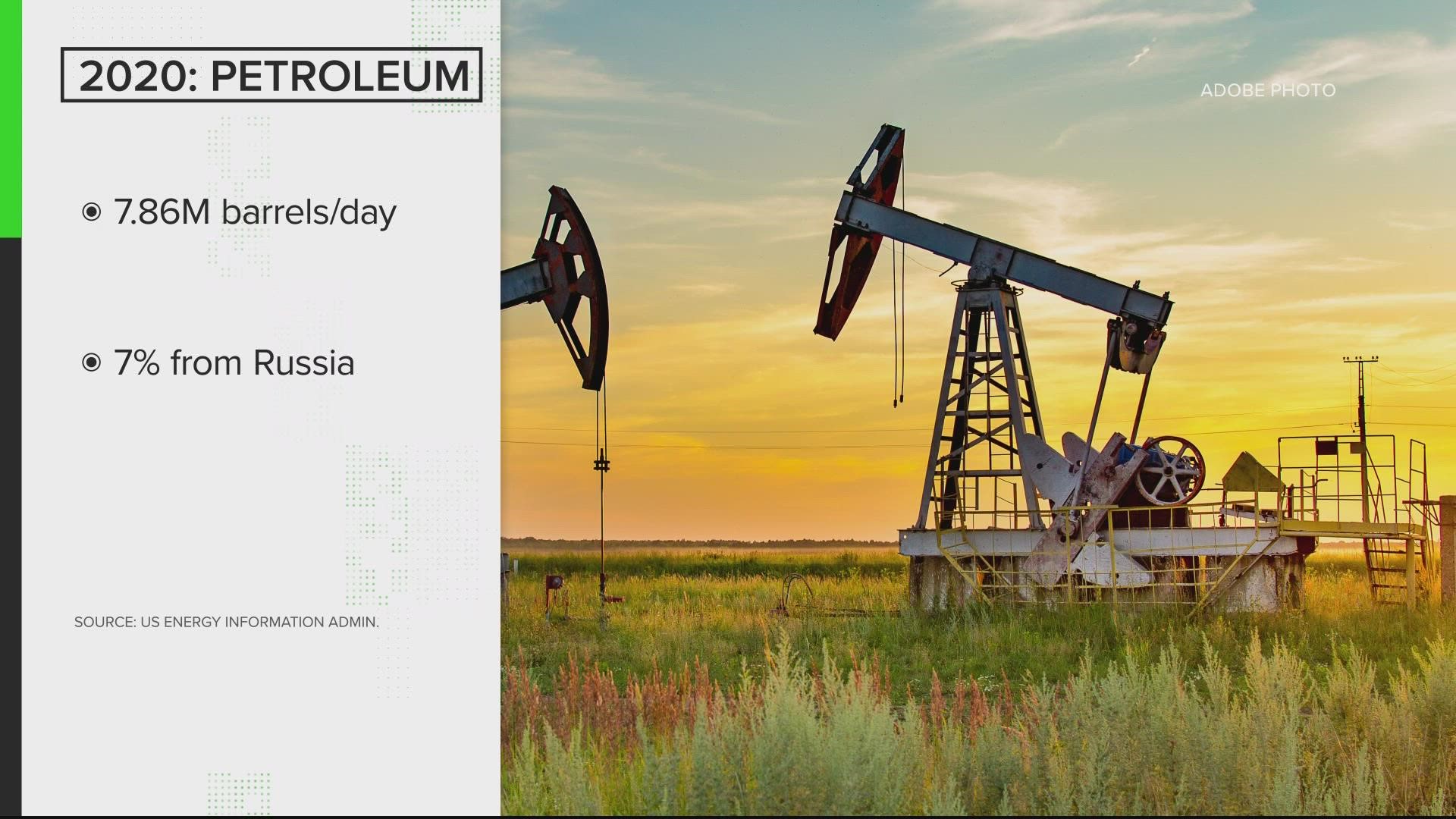WASHINGTON — After President Joe Biden imposed financial sanctions against Russian banks and elites, some questioned whether the U.S. would boycott Russian oil and gas imports as well.
The president has said he’s trying to limit the impact of sanctions on American gas prices, and so far there hasn’t been any announcement on cutting off imports of Russian oil.
However, when asked last week, Press Secretary Jen Psaki said, “no option is off the table.”
"Given high oil and gas prices, cutting off Russian oil and gas could drive prices up to Putin's benefit," Psaki said Friday.
Lots of people say it's hypocritical for the U.S. to continue purchasing Russian energy amid the country's attack on Ukraine.
THE QUESTION:
How much gas and oil does the U.S. import from Russia?
THE SOURCES:
- U.S. Energy Information Administration
THE ANSWER:
In 2020, about 7% of U.S. petroleum imports, including crude oil, came from Russia.
WHAT WE FOUND:
Our Verify researchers looked at data from the U.S. Energy Information Administration, an agency within the U.S. Department of Energy.
In 2020, the U.S. imported about 27.7 million barrels of crude oil from Russia, which represented a 1.3% of total crude oil imports. The U.S. imported its bulk from Canada—more than 1.3 billion barrels, or 61% of America's 2.2 billion imports.
We also looked at preliminary numbers for 2021, which showed the U.S. purchased about 72.6 million barrels, out of the total 2.2 billion it purchased that year, from Russia. That represents about 3.3% of all crude oil imports. Still, Canada made up more than 61% of imports.
As for petroleum, in 2020 the U.S. imported roughly 7.86 million barrels of petroleum per day. Russia made up about 7% of total petroleum (including crude oil) imports, according to EIA. Its top source was Canada.
In 2020, the U.S. exported more petroleum than it imported for the first time since 1949, according to EIA.
Because Russia is one of the largest oil producers in the world, concern over the conflict and possible sanctioning, has pushed gas prices up nationally, according to Patrick De Haan of GasBuddy.
He said it's the "perfect storm" as we head into the summer, when prices typically go up every year.

